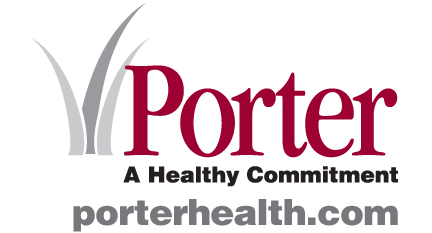From the Spring 2010 StayHealthy publication 
At 78, Nora had always been the “picture of health.” She was bowling twice a week, active in the Red Hat Society, and keeping up with six grandchildren and even seven great grandchildren. So last November when Nora suddenly struggled to put words together, her daughters knew there was a problem.
“We had gone out for a late breakfast and she was fine. But a while later, she wasn’t making sense,” said daughter Patty. “I called my sister and we headed for Porter.”
When they arrived in the ER, Nora wasn’t able to write her name or put sentences together. The doctors at Porter quickly diagnosed Nora’s condition as a stroke and began emergency treatment. One treatment available for stroke patients is the clot-busting drug Tissue Plasminogen Activator (tPA), which can often reverse the damage from stroke if it’s administered within three hours.
“It was really important for us to pinpoint when the stroke began,” said Patty. “We weren’t sure initially. Then we remembered breakfast. Mom had ordered her own meal, complete with hash browns. We were at the edge of three hours,” she said.
Doctors proceeded with the tPA and within hours Nora was visiting with her family and speaking more clearly. Neurologist Mahmood Alnahass, MD, helped to reverse the signs of stroke, and, along with the team at Porter, determine the cause of Nora’s stroke. Ten days later, Nora’s grateful daughters brought Mom home – just in time to make the monthly Red Hat meeting.
When it comes to stroke, act FAST to save lives and brain cells 
Stroke – a brain attack – is America’s third leading cause of death and a top cause of serious disability. Yet up to 80 percent of strokes are preventable. “Not only can we save lives, but we can restore people to their full and active lives after a stroke if we see the patient in time,” according to Virgil DiBiase, MD, a neurologist with Associates in Neurology in Valparaiso.
DiBiase shares valuable answers to the most critical stroke questions:
Manage your blood pressure. Don’t let a stroke be your first “symptom” of hypertension.
Don’t smoke. Smoking leads to a six-fold increase in your risk for stroke, said DiBiase. “The good news is that it’s never too late to quit. If you quit now, within six months you will cut your risk for stroke in half. Within two years, your risk for stroke is the same as a nonsmoker. This is a huge risk for us in Indiana as we have more smokers per capita than any other state,” he said.
Get checked for diabetes and manage your blood sugar.
Control sleep apnea. Sleep apnea is another under-recognized risk. “Sleep apnea doubles the risk for stroke yet it’s very treatable,” said DiBiase.
Watch your diet. Control your weight and your cholesterol. “We promote the Mediterranean diet which has shown to reduce strokes by as much as 60 percent. In fact, this healthy diet is actually more effective at reducing strokes than many medical interventions,” he said.
What are the signs of a stroke?
Signs include sudden weakness, loss of vision, speech, or sensation. “The key is sudden. If one moment you’re fine and then there’s an abrupt change, think stroke. Even if the symptoms go away, you need emergency care, as it could be a warning sign that something big is going to happen. Don’t wait. Don’t call a doctor. Call 911,” said DiBiase.
Can the effects of stroke be reversed?
“Yes, if you receive clot busting medication within three hours of your first symptoms. Time is the difference between complete recovery and no recovery,” said DiBiase. Yet nationwide just 2 percent of stroke patients arrive in time for optimal treatment.
How can I improve my chances of recovery?
Get to a qualified Emergency Room. Fast. Stroke is unique. For instance, the high blood pressure, which may accompany a stroke, is actually beneficial for stroke patients and should not be immediately reduced. A skilled center, such as Porter, knows the unique circumstances that will improve outcomes. Porter is currently working to become the first facility in Porter or Lake counties to be recognized as a Primary Stroke Center, accredited by the Joint Commission in recognition of exceptional efforts for better outcomes in stroke care.
